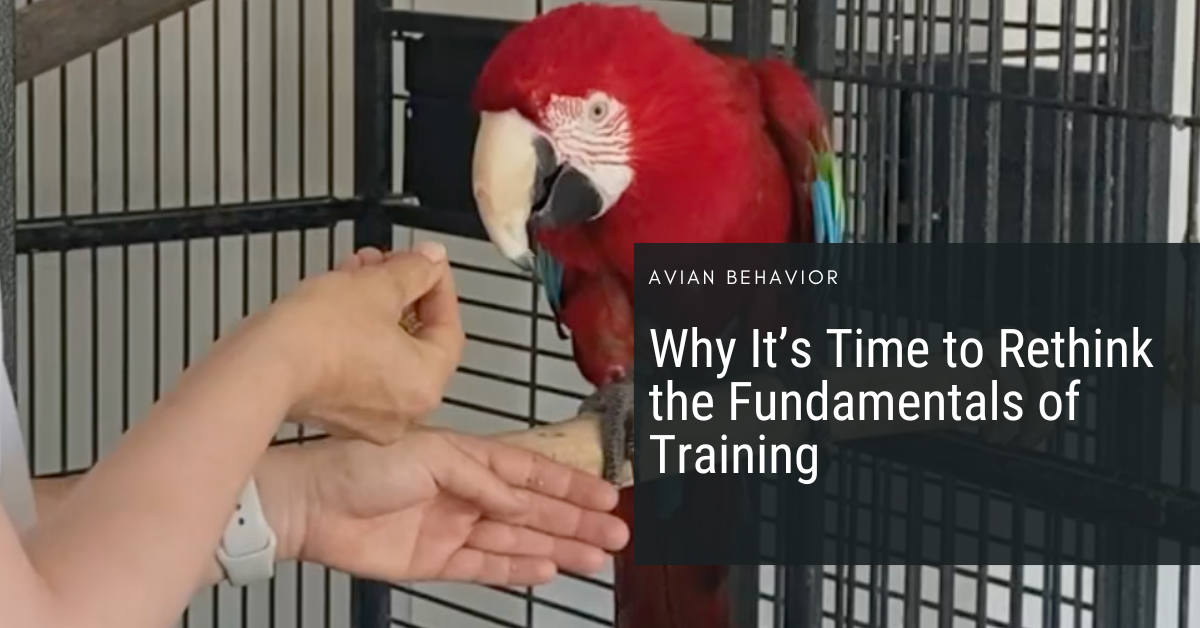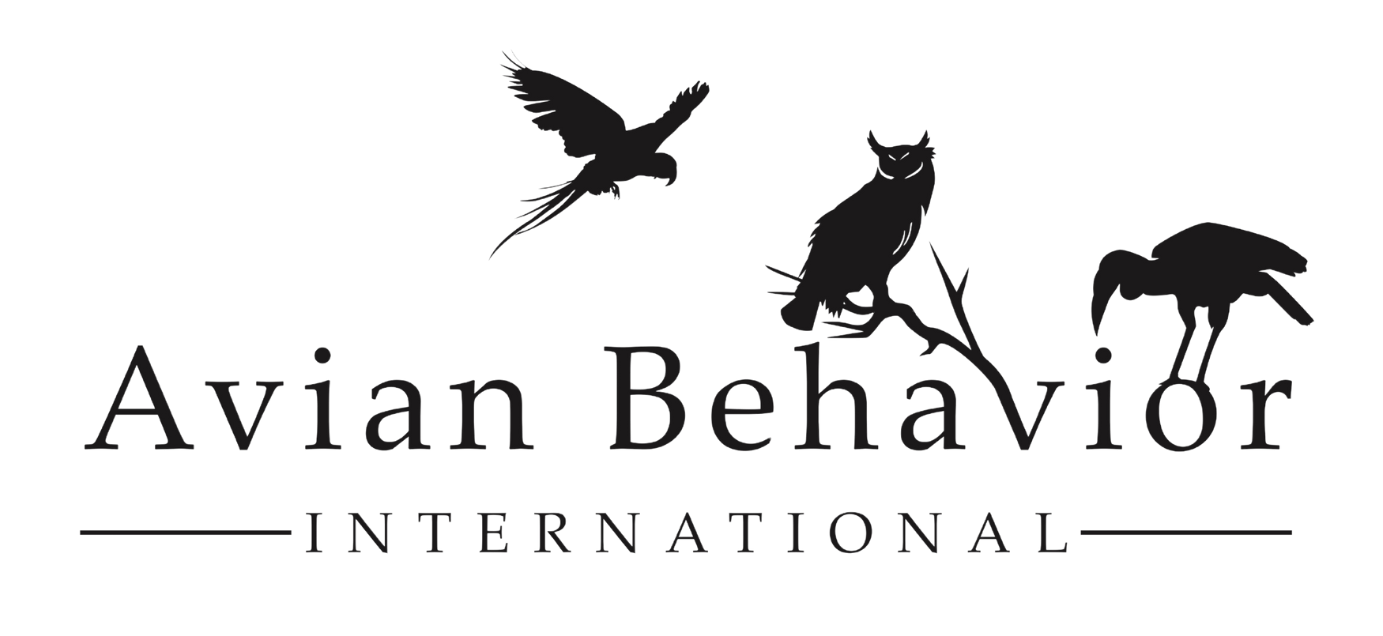
17 Jul Why It’s Time to Rethink the Fundamentals of Training
If you’ve been working with birds for a while, chances are you’ve picked up your fair share of training advice — some of it helpful, some of it… maybe not so much.
“Don’t let the bird win.”
“Hold on ‘til they give up.”
“He just needs to know who’s boss.”
These are the kinds of phrases that have been handed down through generations of animal training. Not because they’re rooted in science — but because they seemed to work. Because they gave us the illusion of control. Because they matched how many of us were raised.
On the other hand, we may have also heard that control is a primary reinforcer and birds need access to choice to succeed. What exactly do these concepts look like if they are true, or do they just make us feel good?
By teasing out what we are actually seeing with fresh eyes on the science, we can understand that whether we are living with our companion parrots or working with ambassador birds, there is a better way forward.
From Control to Construction
For too long, traditional training methods have focused on managing behavior through pressure, punishment, or withholding. But these techniques often come at a cost — stress, fear-based responses, damaged trust, and behaviors that fall apart under pressure.
In contrast, progressive, science-based training looks at what the animal is trying to achieve — and helps them achieve it through collaboration, not compliance.
Instead of asking: “How do I stop this behavior?” or even “How can I replace this behavior with one I like more?”
We ask: “What skill can I build that gives the animal a better way to get what they need?”
This is the essence of the constructional approach. It’s about expanding the bird’s behavioral repertoire. Giving them more tools. More ways to succeed. And more freedom to choose.
Because behavior isn’t random. It’s predictable, and it’s driven by outcomes. When we understand what’s reinforcing the current behavior, we can start to build better ones.
The Power of True Choice
One of the core values in our work at Avian Behavior is agency — the bird’s ability to make meaningful choices that influence their outcomes.
Agency isn’t just a term that makes us feel good about welfare or respecting a bird’s body language that it doesn’t want to engage with us, it actually helps sustain long-term behavior success. Birds with agency are actually more engaged, more confident, and more resilient. Birds without it? They shut down. They lash out. They stop participating.
That’s why we focus on choice-based strategies that reinforce participation rather than demand it. And we explore how this comes out in different and surprising ways. Whether it’s stepping onto a glove or entering a crate, the bird gets to say “yes.” And when they do — that is real progress.
Rewriting the Playbook
I want to be clear: this isn’t about shaming what we understand and how we practice training and behavior modification now. Most of us were taught what we know by mentors who cared deeply and did their best with the tools they had. I always say that we do the best we can with information we have available to us
But science has moved forward. And so must we.
It’s time to retire the “hold on ’til they give up” mindset.
It’s time to stop managing behavior like it’s something to control.
It’s time to build trust instead of forcing tolerance.
Because when we focus on what to build — not what to stop — everything changes.
Coming Soon: The Revised Fundamentals of Training
If this resonates with you — if you’re ready to stop firefighting training problems and start building real behavior change — you’re going to love what’s coming.
We’re re-releasing our Fundamentals of Training course with updated modules that reflect everything we’ve learned from years in the field. It’s packed with science-based strategies, functional analysis tools, and constructional training techniques that actually work — not just in theory, but with real birds, in real situations.
Whether you’re teaching voluntary crating, flight recalls, or medical behaviors, these updated fundamentals will give you a stronger foundation to build from — no matter what species you work with.
This provides us with a shift in how we think about behavior, empowerment, and partnership, and a roadmap into all of the courses that will help you find the solutions that you need.
Stay tuned. The new Fundamentals of Training course is almost here.

